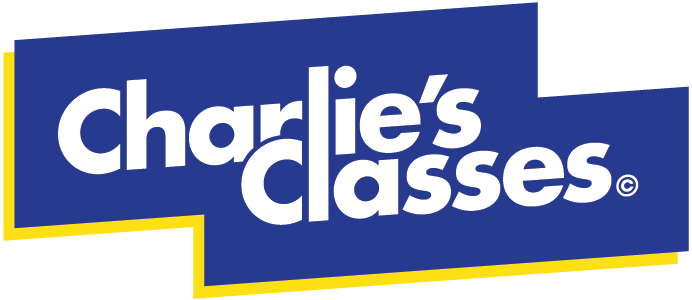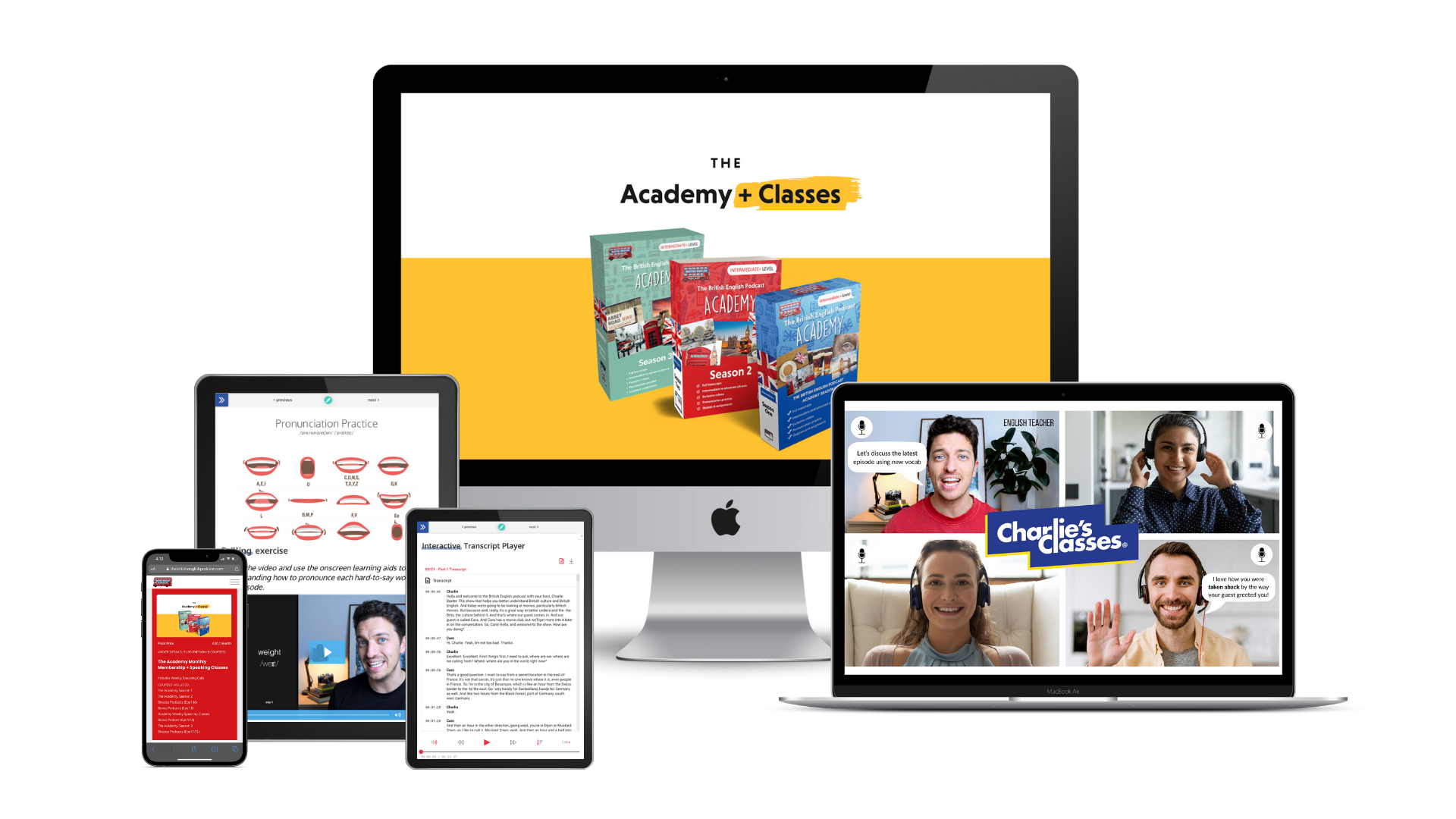Transcript of PREMIUM_ Bitesize Ep 29 - How to talk about your hobbies in English.mp3
Charlie:
Hello and welcome to the British English podcast with your host, Charlie Baxter. Today we have a bite sized episode and this one is going to be focussing on topic-specific vocabulary for talking about hobbies. This is because I run a course called The IELTS Speaking Course on my website, www.thebritishenglishpodcast.com and each module is focussing on a specific topic.
Charlie:
And this one, as I said, is all about hobbies. And these are the bloopers, the answers that weren't good enough to get into the course. But instead of leaving them on my hard drive, I thought, why not help you better understand what's in the course by giving you the- the watered down, the slightly lesser version, through a podcast episode. So enjoy listening to a bunch of model answers for Part One of the Speaking Exam focussing on hobbies.
Charlie:
Welcome back to the IELTS exam, and we are going to be doing the Speaking: Part One to begin with. Name, please.
Harry:
Harry Gyles,
Charlie:
Thank you very much. Have you got some ID?
Harry:
The picture is quite old.
Charlie:
This seems to say Dido Gyles.
Harry:
I must have brought my sister's passport.
Charlie:
So onto Part One, Question One: What do you do in your free time?
Harry:
Well, I do a few things. I like listening to music, and I go to the cinema quite often, catch a movie with my friends. I occasionally go swimming. Not regularly. Just when the mood takes me. I like reading about military history, so I dip into that now and again. But the main thing I do in my free time is play trombone in a brown. But the main thing I do in my free time is play trombone in a brass band. We rehearse twice a week, so that takes up a good deal of my free time.
Charlie:
Hmm. Okay. And how have your hobbies changed since you were young?
Harry:
Well, I guess my day-to-day activities have changed significantly since I was a boy. I suppose in general, they haven't changed much. Well, I suppose in general, my pastimes haven't changed all that much. I mean, I've been playing in bands since I was a kid in the junior band, and that was basically the same as I do now. Let me see. Well, I suppose one thing that has changed is the music I listen to. These days, my taste in music has broadened. I listen to a plethora of different music genres, all sorts of things. Whereas before I stuck to quite mainstream stuff. And of course, these days you can listen to whatever you like, really easily and cheaply, through the computer. When back when I was a kid, you had to go to the music shop and pick up a CD.
Charlie:
Hmm. And are there any hobbies that you used to do which you don't do anymore?
Harry:
Well, I guess there are some pastimes that I don't really do nowadays. Well, I used to play rugby. I was in the local team, which meant that when we played at school, I was one of the better players and so I was picked for the team. And so that kept me out of trouble through my teenage years. But then I messed up my knee and it got to the point where I couldn't even sit down without being in absolute agony. So that stopped me from playing. In fact, it still gives me a lot of gyp, even now.
Charlie:
Ok, we're now going to focus on one hobby, particularly. So, your next question is what's your favourite hobby now? And how did you first start doing it?
Harry:
Yeah. Well, as I've already mentioned, I play horn in a brass band and how I got into that was at school when someone came round and show us a load of instruments and let us have a go on them. And when she asked, "Who'd like to learn to play something?", my hand shot up without me even thinking, then all of us who wanted to learn formed the line. And I was at the back, and by the time I got to the front, the only instrument left was the trombone. So I got that and I started taking lessons, and before I knew it, I was playing in the local junior band.
Charlie:
So let's go back to your hobby. Is it particularly expensive?
Harry:
Yeah. Well, of course, if you want to play seriously, eventually you're going to want to get your own instrument. One that's decent quality, so you'll have to cough up the money for that. And that's a big outlay. A good trombone costs about two grand or so, but once you've got that, it's actually pretty cheap. Playing in the band costs about 15 quid a month and subs, and for that you get a uniform, lots of music to play, the music director's fees, a warm room to play in. So you get a lot for your money, I think.
Charlie:
Alrighty. And who do you do your hobby with?
Harry:
So who do I practise music with? Well, of course I play in a band and there are, what, twenty five or so of us there. And when there's a good turnout, people of all ages and abilities are there and I- I really love that. There's a social element, good camaraderie, a bit of band politics sometimes. But you feel part of the family and you feel valued because you have an important part to play. No matter whether you're the lead cornet player or you're plodding away on the bass line. It's not half as much fun playing on your own. In a band, you're contributing to a much bigger, fuller sound.
Charlie:
Right, and what do you like specifically about your hobby?
Harry:
Well, there's a lot of things that I relish about this hobby, and one of those things is blasting air through it so that everyone's hair flies backwards. No, not really. We get told off if we do that. Now, for me, there's no greater pleasure than when you play a piece of music and suddenly it just comes together. You're not just blowing our notes, you're creating an atmosphere, and you can feel the hairs on the back of your neck standing on end and you get goose bumps all up your arms. It doesn't happen often, but when you get one of those moments, there's nothing like it.
Charlie:
And is there anything you dislike about this hobby?
Harry:
Oh, yeah, when it's, when it's cold and you've had a rough day and you have to drag yourself to a rehearsal, and chances are it's not going to be a good one because loads of people are probably going to skip it. Sometimes you really can't be bothered. Banding is also very demanding on your time. It's a huge commitment to be out two nights a week, especially if you have concerts at weekends. It really eats into your free time and you have to find a partner who's understanding about that.
Charlie:
Right. And what sort of people enjoy your hobby. So, alright...
Harry:
Yeah, it's fun, it's fun! It's like... Wow, I mean, all sorts, really. In our band- well, in our training band, we've got players as young as seven, and in the main band we've got players in their 80s. So, all generations. You've got quite a few family groups, parents get their kids into it, or sometimes parents bring their kids along to play. And instead of standing around waiting, they pick up an instrument and have a go as well, which is nice. And you get all the personality types, to extroverts, introverts. It's a nice thing for people to do if you aren't that gregarious, actually, because you feel you're part of something without having that pressure to socialise.
Charlie:
Okay, and coming up to the last question of Part One: Are there any other hobbies that you'd like to take up and why?
Harry:
Oh, I don't know. I don't really have time to do anything else. But if I did, I suppose- well, you know, I'm not really physically active enough, and I've got a friend who does BMF, you know, British Military Fitness. Mud running, wheelbarrows, and burpees and such like. It looks pretty challenging and quite good fun, though I'd have to train properly to make a good go of it. I can't see it happening, though. Realistically, I don't really have the dedication and I don't think my knee could stand it either.
Charlie:
So what you just heard was the bloopers, meaning the mistakes or parts of the recordings that were not good enough for the real thing. So if you thought that was useful for you in regards to improving your IELTS speaking score, then we have created a full course that will interest you as we have even better answers with the target language being visually highlighted as it comes up, then review videos going over the target language in a really thorough and enjoyable way.
Charlie:
We also have a ton of learning resources that go with it, like quizzes, glossaries, flashcards, writing assignments and technique videos and many more things. And to top it all off, there are IELTS classes being held twice a month for every single student who attends this course. So if this sounds like it would help you, then head over to www.thebritishenglishpodcast.com/ielts and then you can try out the free sample. Learn a ton of information from that free sample and then decide if you want to join in on the fun. That's all from us for today. See you next time!











